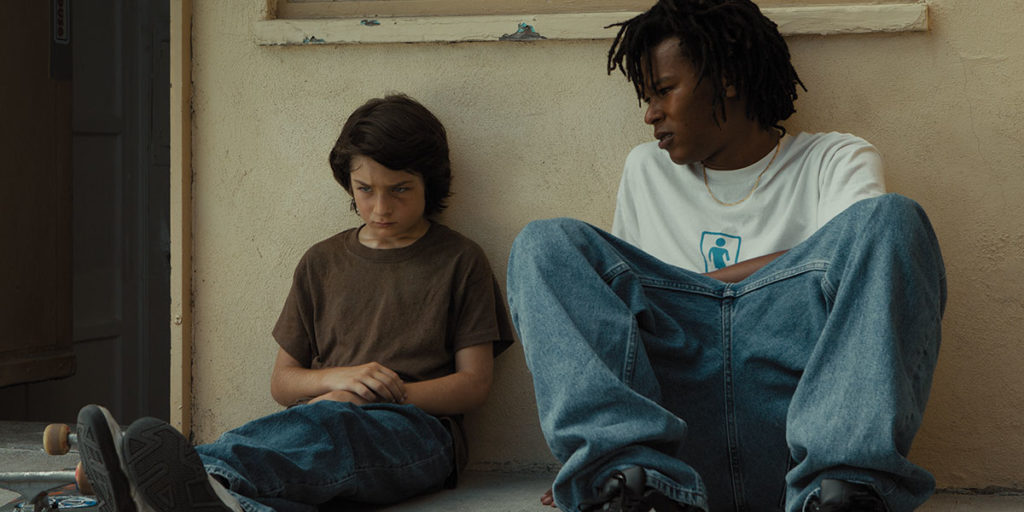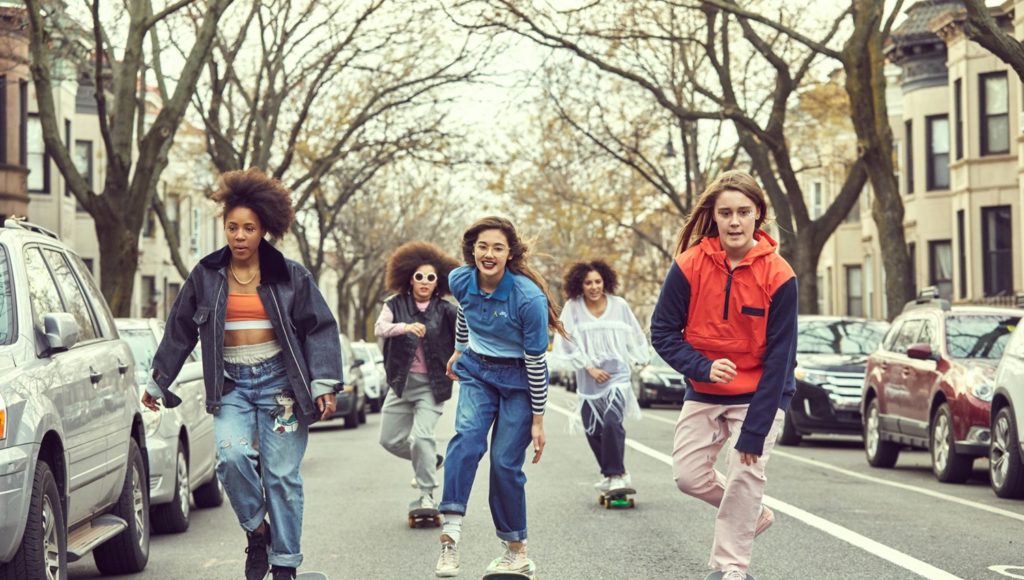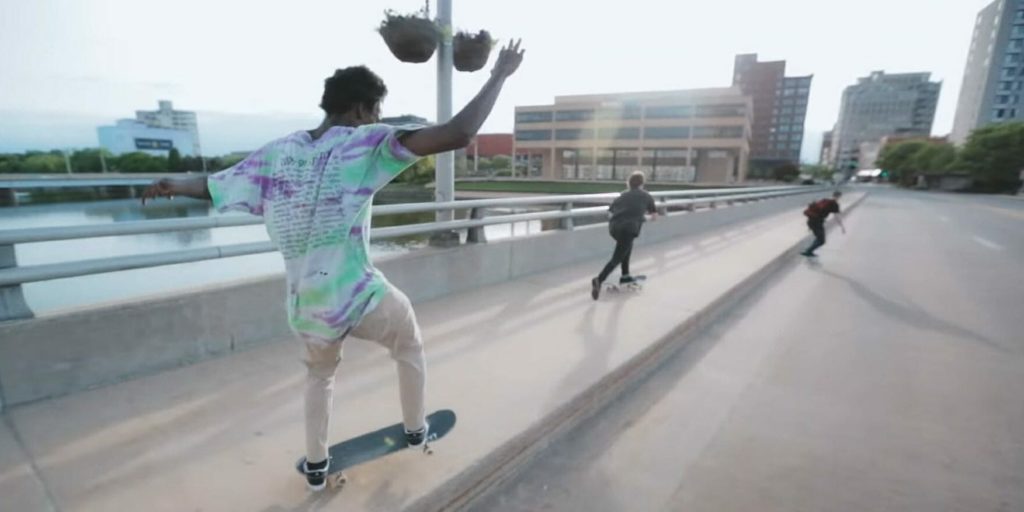Reviews include Irena’s Vow, The Beast, and Before I Change My Mind.
Mid90s in 2018, The Year of Skate Films
September 13, 2018
Old-school hiphop. A film (film!) aesthetic that is visually confident. Extended footage of skate tricks.
There’s no denying the sum of these parts are, without overthinking it, inherently cool. But is that enough?![]()

This isn’t to suggest Mid90s, a film playing in TIFF’s Special Presentations programme, is bad. It’s not. But if we take Stevie — AKA Sunburn, the film’s protagonist — as a fledgling skateboarder stand-in for Jonah Hill, newcomer feature filmmaker, the fact that Mid90s impresses is more or less the same as smiling when Stevie lands his first ollie. Mid90s is, at best, a pop shove-it; a technical display of journeyman ability.
The coming-of-age film trades in nostalgia and, bizarrely, does very little with it. To be sure, strong production design, World Industries T-shirts, and Del Tha Funkee Homosapien tracks effectively establish the era, but it’s never clear what exactly about the decade is crucial to the story; nothing explicitly intrinsic to 1990s skate culture (or, to expand our scopes a bit, the city of Los Angeles) is narratively critical. In other words: Add a cell phone or two, and this film could have been contemporary.
At least, that’s what Crystal Moselle did with Skate Kitchen, her sophomore feature that is miles ahead in complexity. Focusing on an all-girl skate crew who enlist others via Instagram in New York City, the almost-documentary fiction film has the same appreciation for hiphop and jumping sick gaps as Mid90s, but here the characters and school-of-hard-knocks episodes are new and more immediate. My question throughout Hill’s movie was never fully answered: Why look back just to gaze at your navel?

What Mid90s does get right, however, is reminding audiences just how entwined film culture is with skateboarding. Indeed, the two communities feed and encourage each other in ways Hill proves in more ways than one. For all my subtractions of the movie’s formulaic additions, the movie is easily one of the most “cinematic” at the Toronto International Film Festival this year (only Netflix stunner Roma likely tops it), as the visual pleasure of watching skaters land tricks to fresh tunes is, as previously mentioned, fly as hell. Catch the opening scene, which features distributor A24 spelled out with boards. Then there’s Fourth Grade, one Mid90s character who captures all of the skateboarding escapades as an amateur videographer (one who wants to make movies in the future — who’d a thunkit?), a plot point that returns in a truly gratifying way. Finally, there’s the film’s boxy frame by cinematographer Chris Blauvelt, used to feel emotionally constraining (used less obnoxiously here than, say, Xavier Dolan’s Mommy). If the story didn’t spin its wheels, we’d be looking at something truly special here.
A much stronger exploration of how skater kids walk a line of bruises at home or scuffed knees in the streets is Bing Liu’s 2018 Sundance documentary winner Minding the Gap, which has played a major part in making this year an excellent one for skate films. To hell with GoPros and drone shots: Skateboard-riding cinematographers make for some of the dopest sequences in tool-assisted filmmaking, and in this way, Minding the Gap is mesmerizing as it follows lines and chases its subjects. That it’s a documentary steepens the impact of what it is we’re watching — and lessens the comparison to, say, Skate Kitchen or Mid90s — but it’s worth mentioning just the same to underline how Jonah Hill was wise to lean in to the incredible relationship skateboarding shares with cinema.

And, really, I should probably lay off him. At the end of the day, skateboarding is about inclusion — a subculture of misfit toys that invites people from all creeds and backgrounds to hang out and be present. Cinema, on the other hand, is historically notorious for exactly the opposite.
— Jake Howell



